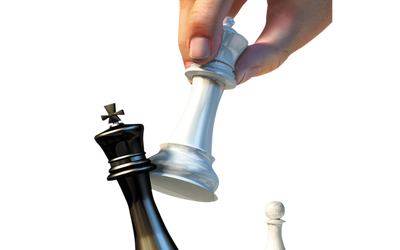
How to not hung peices in chess
Have you ever hung your queen in a middle of a game evn if you were totally focused, this blog will showcase why? And how to avoid doing so?Have you ever noticed how, during a game of chess, the pieces seem to move around on the board even when you're not touching them? Or perhaps you've experienced a similar phenomenon when staring at a still image for too long and noticing that the image starts to fade or distort. This strange visual experience is known as the Troxler Effect, and it can have a significant impact on your perception and performance in chess.
The Troxler Effect is a type of perceptual illusion that occurs when you stare at a fixed point for an extended period of time. As you focus on the central point, the surrounding stimuli gradually fade or disappear from your awareness, leading to distortions or illusions. In chess, this can happen when you're concentrating on a particular section of the board and lose track of the other pieces.
For example, if you're focused on a particular pawn or bishop and don't pay attention to the rest of the board, you may miss important moves or opportunities. Similarly, if you're too fixated on a particular strategy or plan, you may miss important cues from your opponent or fail to adapt to changing circumstances.
So how can you avoid falling victim to the Troxler Effect in chess? Here are a few tips:
Take breaks and refocus your eyes: It's important to take regular breaks during a game of chess to rest your eyes and avoid fixating on a particular section of the board. Use these breaks to refocus your gaze and take in the entire board.
Practice peripheral vision: Try to train your peripheral vision to take in the entire board at once. Practice looking at the board without focusing on any particular piece, and try to develop a "big picture" perspective of the game.
Stay flexible: Don't get too fixated on a particular strategy or plan. Be willing to adapt to changing circumstances and respond to your opponent's moves.
Play with a clear mind: Avoid distractions and focus on the game at hand. Stay calm and composed, and avoid letting your emotions cloud your judgment.
By following these tips, you can improve your awareness and avoid falling victim to the Troxler Effect in chess. Remember, the key to success in chess is not just about making the right moves, but also about maintaining a clear and focused mind throughout the game.
More blog posts by heckerboy

Guess the ELO ep1
I know it is like Levy's videos, but hey we are doing our best okay ? anyways in this series we will…
This Man Saved your Life and Mine
If it was not for him, we would probably be both dead, but who is he?
0.1+0.2
Is 0.1 + 0.2 0.3
